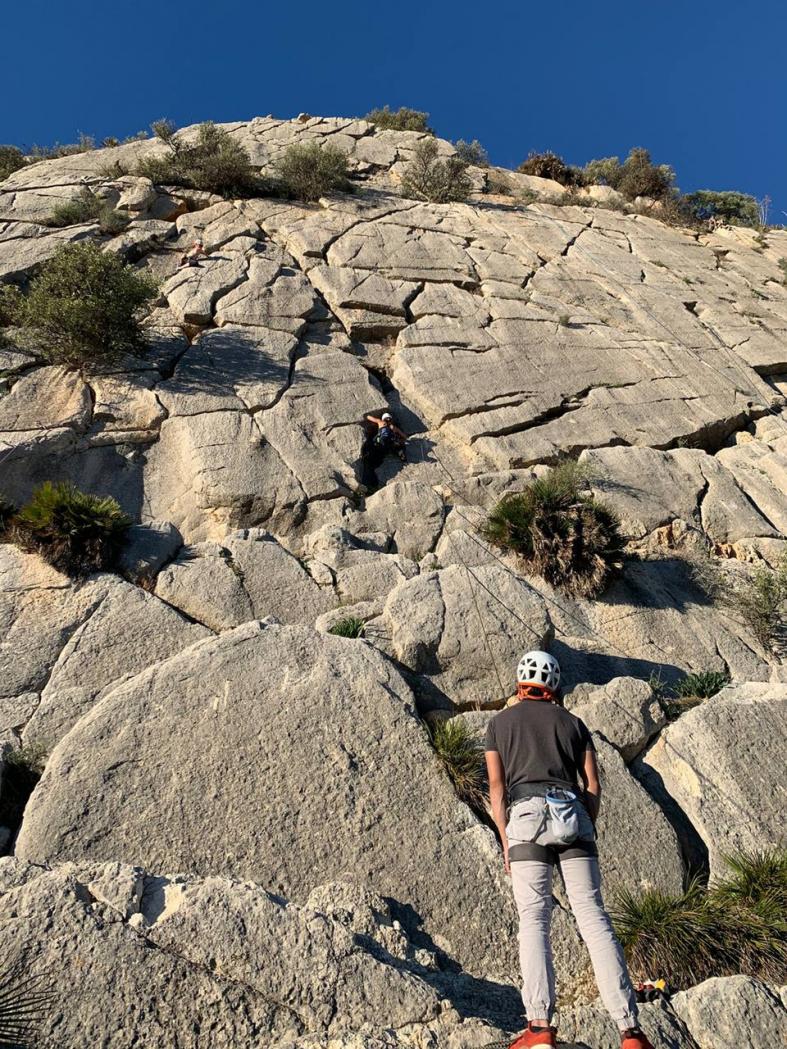Rise of revenge travellers: Celebrating new freedom to globetrot
Before the pandemic, Swiss expatriate Sacha Walker would travel overseas for leisure up to eight times a year.
The managing director at a Swiss private bank here would even stay in different hotels on each trip because he dislikes the familiar.
But as Covid-19 swept across the world in 2020, grounding flights and shutting borders, his travel plans were brought to a halt. Two years of cabin fever followed.
Life without travel was unbearable, says Mr Walker, who came to Singapore in 2011.
"In the past two years, I explored Singapore extensively and went on four cruises to nowhere."
When the Vaccinated Travel Lane (VTL) scheme, which started last September, was announced, he quickly booked a flight to Europe - not just to visit his friends and family, but also to celebrate the return of travel.
"My partner and I called our trip the 'Freedom Fighters Tour'," he says. "We arrived feeling a little dazed in Milan because we didn't know how to deal with the sudden freedom. But it didn't take long for us to realise we can go anywhere and do anything."
Over 3½ weeks last December, the couple made their way across Italy, Switzerland, Sweden and Spain.
"We celebrated New Year's Eve at Mondo Club in Madrid, which was open for 72 hours straight for people to party. We partied for three straight days, up to seven hours at a time," he says, adding that they spent about $30,000.
Mr Walker is among the hordes of revenge travellers who have or are rushing to book long-overdue trips.
Revenge travel - sparked by pent-up demand for travel - is a term coined on social media in 2020.
However, it was not until the following year that most countries began scaling back on Covid-19 restrictions that the phenomenon started gaining ground.
In India, for instance, massive overcrowding at several tourist hot spots led to the government issuing stern warnings to domestic travellers last July.

News about 180-day round-the-world cruises selling out in a single day also made headlines last year.
Now that borders have reopened in Singapore, travel-starved residents are poised to take off with a vengeance.
Last week, the Immigration and Checkpoints Authority said it received an unprecedented number of passport applications in March.
It is getting about 6,000 passport applications daily - triple the pre-Covid-19 daily average of 2,000 daily two years ago.
The VTL scheme has been replaced by a simplified Vaccinated Travel Framework since last Friday.
Mr Jason Wong went on a two-week rock-climbing trip to Spain last December under the VTL.
During the pandemic, the 35-year-old insights manager says: "I realised there was so much in this world and in life that I have yet to experience.

"Before Covid-19, I always thought these things could wait. I used to tell myself to focus on my career first, save my money and then do all the things I wanted to do later on.
"Then Covid-19 happened and I was not able to travel freely. It made me think, 'What's the point of saving all that money if your life doesn't feel enriched?'"
Some tour operators such as Trafalgar Tours are already seeing a surge in demand, especially to Europe.
Ms Mae Cheah, president of the company's Asian division, tells The Straits Times: "With the announcement of the borders opening, our total revenue increase from September 2021 to March 2022 is 2,903%."
She declined to reveal exact figures.
She added: "Based on our inquiries and bookings, we see interest in destinations like France, Spain, Switzerland and Turkey."
Mr Ho Chee Wai, head of neo banking at Singapore-based cross-border payments company Instarem, has also noticed an increase in travel-related spending since the start of this year.
"Travel and airline bookings using Amaze, Instarem's smart debit card, saw double-digit percentage growth every month in 2022."
Digital nomad Angeline Chew, who is in her 30s, left Singapore in early February.
The hospitality consultant, who is allowed to work remotely, is now in Bangkok and intends to travel across Thailand and Vietnam until May, before heading to Central America for another three months.
"Asia wasn't in the plans, but I have decided to come here now that travel restrictions are eased," she says. "Hotels here are cheaper by 40 to 80 per cent, and not even at 50 per cent occupancy.
"It's a surreal, familiar and heartwarming feeling to return to these countries that have been closed to travellers for so long."
Meanwhile, Mr Walker is all prepped for his next holiday. He has booked his flights and hotels, and will be taking unpaid leave to travel this year.
"I used to hate planning, but now I like it because it gives me something to look forward to," he says. "I think I have about six trips lined up for now - to Thailand, Italy and Greece, among others. It's easier to book now that many hotels offer refunds if you need to cancel."
Back-to-back trips
The uncertainties wrought by the pandemic have also fuelled a trend called trip stacking, where travellers book multiple trips back-to-back instead of one vacation at a time.
Thanks to flexible cancellation policies by hotels and airlines, many revenge travellers now stack their trips to maximise their time abroad - just in case one holiday does not pan out.
In a recent interview with Fortune magazine, Mr Adam Armstrong, chief executive of tour company Contiki, said that early booking data for this year shows that younger travellers are now more likely to travel for longer periods of time.
Those aged 18 to 35, he added, "are heading to Greece, Italy, Egypt, and Costa Rica - and bookings for these are up 375 per cent compared with last year. They're booking these trips back-to-back to really stretch their travel wings again".
One such trip stacker is Mr Wong, a rock-climbing enthusiast, who has booked two trips to leverage the Good Friday and Labour Day/Hari Raya Puasa long weekends.
"In April, I'll be travelling to the Philippines. I heard the climbing scene is growing in Baguio," he says. "In May, I'll be doing a live-aboard scuba diving trip in the Maldives. For seven nights, we'll cruise to some of the best dive sites there, including the Ari and Vaavu Atolls."

Changes in travel behaviour
As travellers make up for lost vacation time, they are more open to going beyond their comfort zones, picking new surroundings and experiences and splashing out on them.
According to booking website Booking.com's 2022 Travel Predictions report, 72 per cent of travellers say they would go for any type of vacation so long as their budget allowed.
Market researcher Fatima Khater, who is in her 30s, says: "I used to travel on a budget, but my trip to Germany last November was completely different.
"I said yes to everything. I ended up doing the via ferrata (a fixed mountain route consisting of rungs, ladders and cables) and went to a naked spa and several parties. I also splurged on a private tour guide and dropped €700 (S$1,050) on something completely frivolous."
Mr Walker is also now more willing to spend more on a trip. "On our last trip, we did guided private tours, something we've not done before. We also stayed in luxury hotels like the Gorki in Berlin, Ritz-Carlton and Mandarin Oriental."
The pandemic has also altered Ms Jessica Choi-Merritt's travel philosophy, but in a different way than most people.
For her upcoming trip around South-east Asia, the 34-year-old account director at Google wants to help local communities.

She will be heading to Vietnam, Bali in Indonesia and Cambodia with her 35-year-old husband and their eight-month-old son.
"Before the pandemic, we used to travel about once a month to tick items off our bucket list," she says. "The pandemic put a lot of things in perspective.
"In Singapore, we were lucky. People in countries that relied on tourism were not so fortunate. I heard from a family friend in Bali that the situation is dire there.
"We would like to help the local communities while we're there."
In Thailand, Ms Chew prefers patronising street stalls and staying at boutique guesthouses so her money goes directly to the locals.
"Our tourist dollar here goes a long way towards helping the businesses," she says.
Booking.com's report found that 58 per cent of people agree "it's important that their trip is beneficial to the local community", while 29 per cent "are going to do more research into how their tourism spend will affect or improve local communities".
But not everyone is hopping on the revenge travel bandwagon.
Some, like Ms Kathy Xu, 39, will be staying put for a while more.
The founder of Singapore-based responsible tour company The Dorsal Effect, who travelled regularly before the pandemic, says: "Travelling on a mass level was actually devastating to the planet. I don't know if travelling can ever be a sustainable activity, but my dream is for people to travel mindfully and slowly because they need the break."
Get The New Paper on your phone with the free TNP app. Download from the Apple App Store or Google Play Store now

